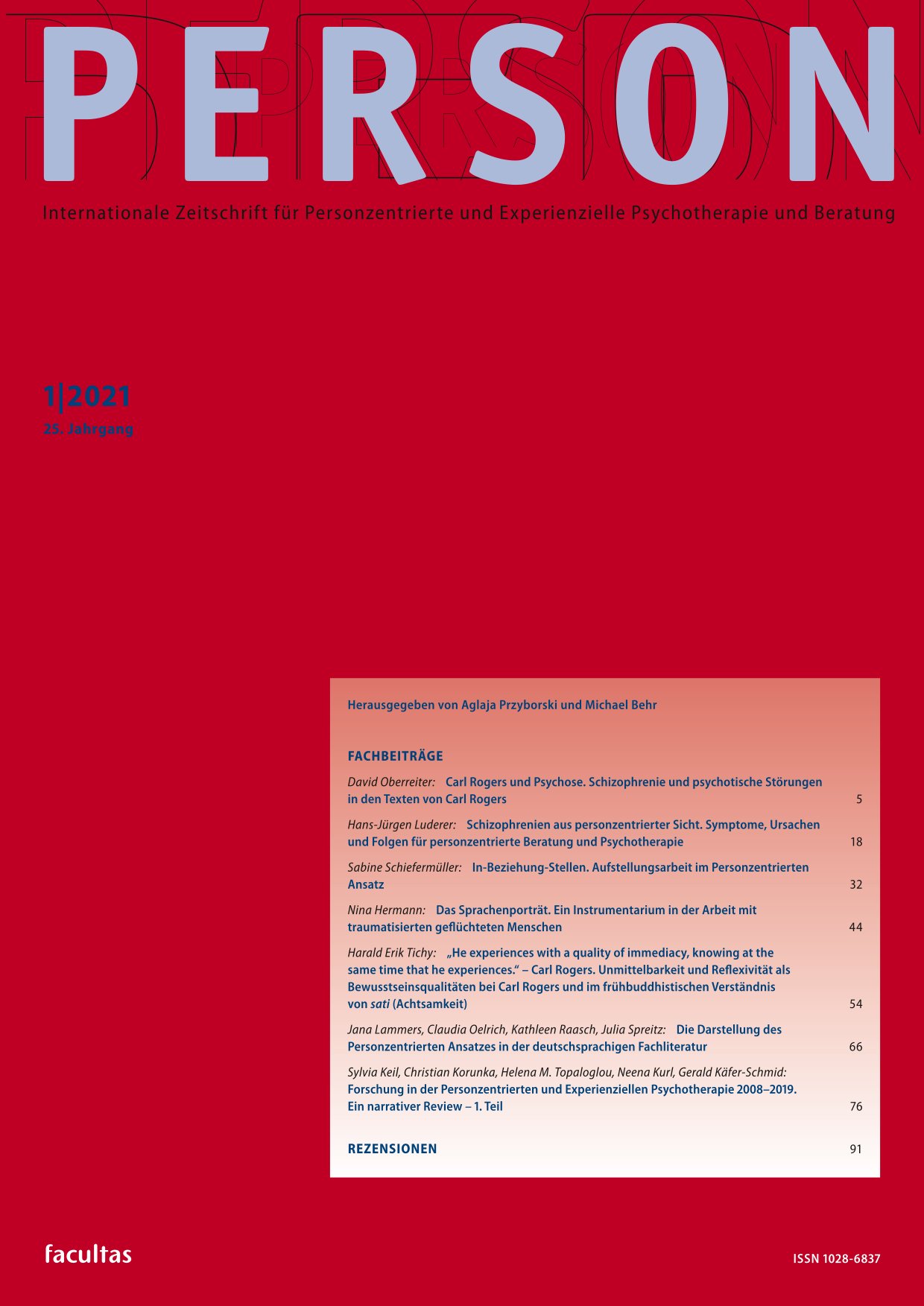He experiences with a quality of immediacy, knowing at the same time that he experiences.“ – Carl Rogers Unmittelbarkeit und Reflexivität als Bewusstseinsqualitäten bei Carl Rogers und im frühbuddhistischen Verständnis von sati (Achtsamkeit)
Main Article Content
Article Sidebar
Abstract
“He experiences with a quality of immediacy, knowing at the same time that he experiences.” – Carl Rogers. Immediacy and reflexivity as qualities of consciousness in the writings of Carl Rogers and in the early Buddhist understanding of sati (mindfulness). Which conditions allowed Carl Rogers to enter presence when he was at his best? Assuming significant correspondences between Rogers’ experience of presence and samādhi (collectedness) in the early Buddhist understanding of meditation, the thesis is, that Rogers’ therapeutic practice can be interpreted as a meditative practice. It is shown that Rogers thereby implicitly cultivated two main qualities of sati (mindfulness), a key virtue in Buddhist meditation: an immediacy in experiencing and a reflexive consciousness. Given the correctness of the premise above, Rogers’ engagement for being continuously present to his clients was a central condition for the natural unfolding of presence as a slightly altered state of consciousness.
How to Cite
Downloads
Article Details
presence, relational depth, mindfulness, therapist attitudes

